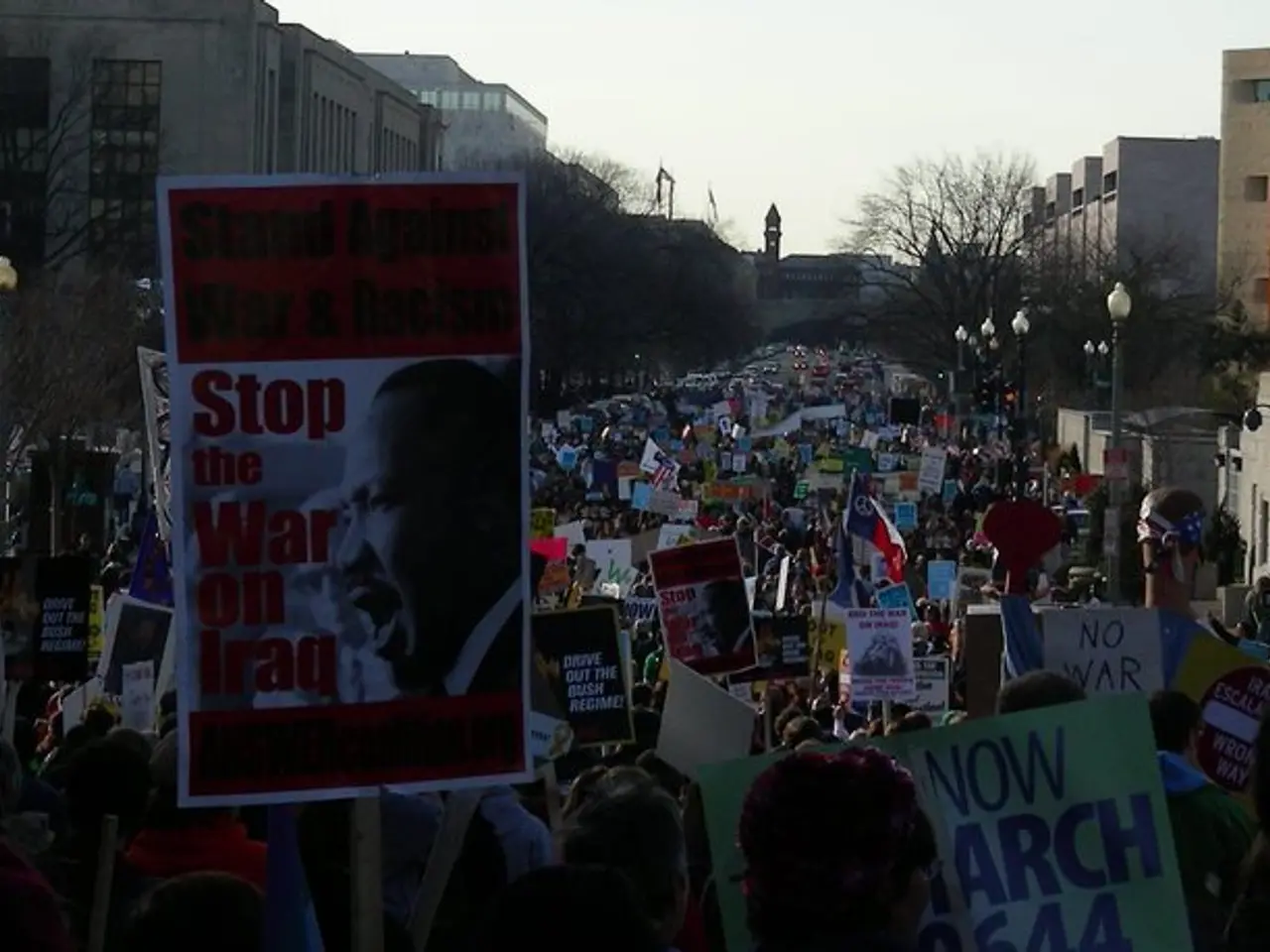Awaiting Release: Belarusians Anticipate Further Prisoner Liberation
Central Warsaw buzzed with excitement as Belarusian exile Asya watched from the sidelines, a gathering crowd welcomed Sergei Tikhanovsky, an unexpectedly released Belarus opposition figure who'd spent five grueling years behind bars.
Nicknamed "the blogger," Tikhanovsky, 46, was jailed in 2020, just weeks before he was due to take on Alexander Lukashenko, Belarus's long-time leader, in the presidential elections. His arrest was the first salvo in a crackdown that escalated after Lukashenko declared victory over Svetlana Tikhanovskaya – Tikhanovsky's wife, who ran in his stead – in an election widely criticized as a sham.
Asya was among hundreds of Belarusian exiles living in Poland, celebrating Tikhanovsky's surprise release under pressure from the United States. But her heart ached for others still pinioned.
"I'm overjoyed for those who are freed, but with each release I wonder about my friends," she said.
Some 1,169 political prisoners languish in Belarusian prisons, according to Viasna human rights group.
The revelation of Tikhanovsky's shocking appearance stirred a fresh wave of hope for their release.
"Honestly, the regime must change. But for me, the priority is to ensure the safety and freedom of people," Asya said.
Individual records of his imprisonment were hushed. Tikhanovsky's incarceration had lasted since March 2023, and there were fears for his wellbeing.
"I bawled all day when I saw him," said 71-year-old activist Alexandra Khanevich, who'd fled Belarus after protests. "To me, it reminded of the horrors of concentration camps."
Tikhanovskaya revealed that their daughter didn’t recognize him upon their reunion. His bones were visible, and he looked a hundred years old.
"We knew it was him only when we heard his voice," said Yulia Vlasenko, a protester from Vitebsk.
Some recognized Tikhanovsky by his unique ears, emaciated as he was.
With tears streaming down his face, Tikhanovsky shared tales of alleged abuse, including torture and solitary confinement. Prison authorities had tried to "fatten him up" before his release, he claimed, offering him excess meat, fats, and butter.
Tikhanovsky predicted more releases, reporting that KGB officers were touring prisons, persuading inmates to write clemency letters to Lukashenko.
Hoping for a new surge of energy, many hailed Tikhanovsky’s release as a promising sign for the Belarusian opposition movement, spread thin by exile.
"I've never been more determined," Tikhanovsky declared. A contrast to his wife, known for high-level diplomacy, Tikhanovsky's internet personality was far less polished, often with street-smart humor.
Protester Alexandra Dobrovaya chuckled, "Svetlana is the diplomat... Sergei is from the streets."
Vitaly Moisa, a 42-year-old construction worker, considered the couple a "double hit" for the regime, expecting them to boost the opposition with Tikhanovsky's charisma.
Throngs of attendees at the Warsaw rally adopted masks to protect themselves, fearing retribution for their loved ones back home if they were recognized at the rally.
Oleg Abrashim, a Ukrainian from Kharkiv, had journeyed with a heartfelt message for Tikhanovsky: a hand-written letter from his Belarusian girlfriend. She wished to remain unseen, terrified of KGB scrutiny while her family was yet to escape.
Abrashim found solace in Tikhanovsky's words, likening the orator to a fellow Ukrainian leader, Volodymyr Zelensky.
"I can see why they followed him," Abrashim mused. Inspired by the seeds of hope, he felt a profound connection between Belarus and Ukraine, both hankering for freedom.
"Belarus and Ukraine must be free," Abrashim said, clutching the letter fervently.
- The unexpected release of Sergei Tikhanovsky, a Belarus opposition figure, under pressure from the United States, sparked a fresh wave of hope for the release of other political prisoners in Belarus.
- Asya, a Belarusian exile living in Poland, expressed her joy for those who are freed, but also expressed concern for her friends who still remain imprisoned in Belarus.
- The world news about Tikhanovsky's release was also covered in the general-news and crime-and-justice sections, highlighting the allegations of abuse, torture, and solitary confinement he endured during his incarceration.
- The art section of the news featured stories about the impact of Tikhanovsky's release on the Belarusian opposition movement, with many seeing it as a promising sign of change and a boost to the anti-government sentiment in the country.








